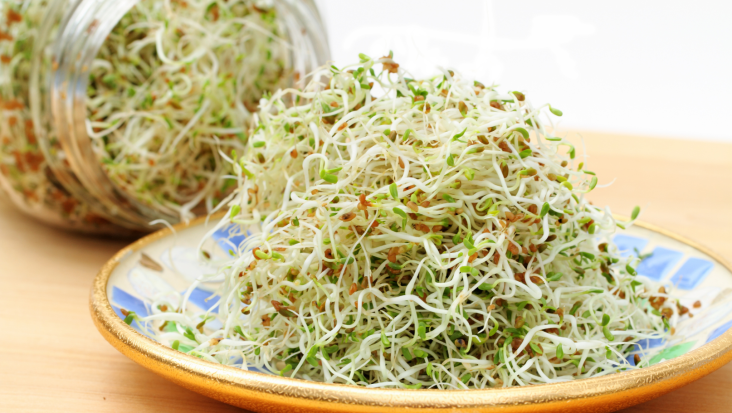posted February 14, 2023
While I always enjoyed eating sprouts, the notion of sprouting them myself never entered my mind until a friend shared how she was successfully sprouting and enjoying the process.
Skeptical at first, it just seemed too simple: soak seeds in water, drain and change the water daily for several days, keep covered with a dish towel, and you have sprouts ready to eat? It sure sounded easier than trekking to the grocery store for a small plastic container of sprouts. If it was that easy, why wasn’t everyone I knew doing it?
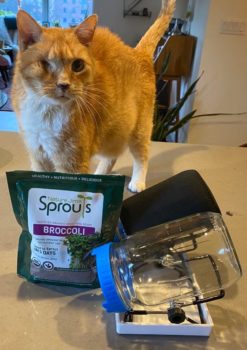
I put the thought to rest until a surprise box arrived at my door. A friend gifted me a starter kit from Amazon that included a wide-mouth mason jar, screen lid, and sample seeds. After a few successful trial runs sprouting, I ordered an additional sprouting kit. The kit is not a necessity, but it makes it convenient to always have sprouts ready to eat.
You are not required to be a 60s hippie or have a green thumb for success sprouting beans and seeds—with a little education and confidence we can all do this. I started by perusing Facebook groups and YouTube videos for sprouting tips and resources. Some books I recommended include: How Can I Grow and Use Sprouts as Living Food and The Sprout Book.
Organic sprouting seeds are available at local health food stores and Asian markets, or browse specialty stores selling organic goods. Keep an eye out for popular sprouting favorites such as alfalfa, mung beans, broccoli, and lentils. Personally, I love a lively 5-seed blend that I get from Jackalope Seeds. If you are like me, and prefer to shop online for sprouting seeds and beans, choose organic, non-GMO options to ensure they are free from chemicals and pesticides.
I also recommend Sproutman.com, Sprouthouse.com, TrueLeaf Market Microgreen Growing Seeds, and Nature Jim’s Organic Sprouts. Amazon also has a variety of sprouting seeds, like this Organic Spicy Mix.
6 Easy Steps for Sprouting
It is easy to start the sprouting process once your seeds arrive. Here are the steps:
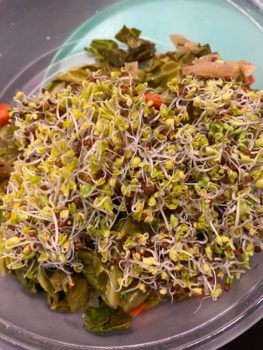
- Rinse 2 tablespoons of seed and place in a mason jar fitted with a screen lid. Fill the jar with water to cover all the seeds.
- Soak for 12-24 hours, covering the jar with a dish towel or blackout sleeve.
- Keep the screen lid on and thoroughly drain the water.
- Refill with fresh water and swoosh it around. Pour the rinse water out and place the jar on a tilt in a bowl to drain excess water.
- Cover, and keep the jar on a tilt until the end of the day. Repeat steps 4 and 5.
- Once the seeds are fully sprouted, remove, rinse, pat dry (or use a lettuce spinner), and store in an airtight container.
If for any reason your sprouts smell rancid or look moldy, discard, wash out your jar, and give it another shot.
Sprouting is such a fun and easy way to enhance your lifestyle. It’s satisfying to watch the seeds turn into edible sprouts in such a short period, with minimal chance of failure. Sprouts add a crunchy texture to dishes and provide a flavorful and healthy alternative to processed foods.
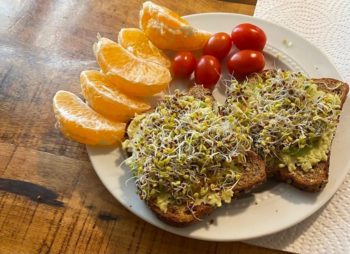
There are numerous health benefits of eating sprouts. Peptides, strings of amino acids which are the building blocks of protein, are found in high concentrations in sprouts. These peptides have been shown to reduce blood pressure and slow the growth of cancer cells. Broccoli sprouts, in particular, contain 10-100 times more sulforaphane than in mature broccoli plants, and have been shown to reduce cancer cell multiplication. Additionally, sprouts support digestive health due to the high levels of insoluble dietary fiber.
I am now a sprout enthusiast and firm believer in home sprouting, even in a cramped New York City apartment! I encourage you to give it a shot.
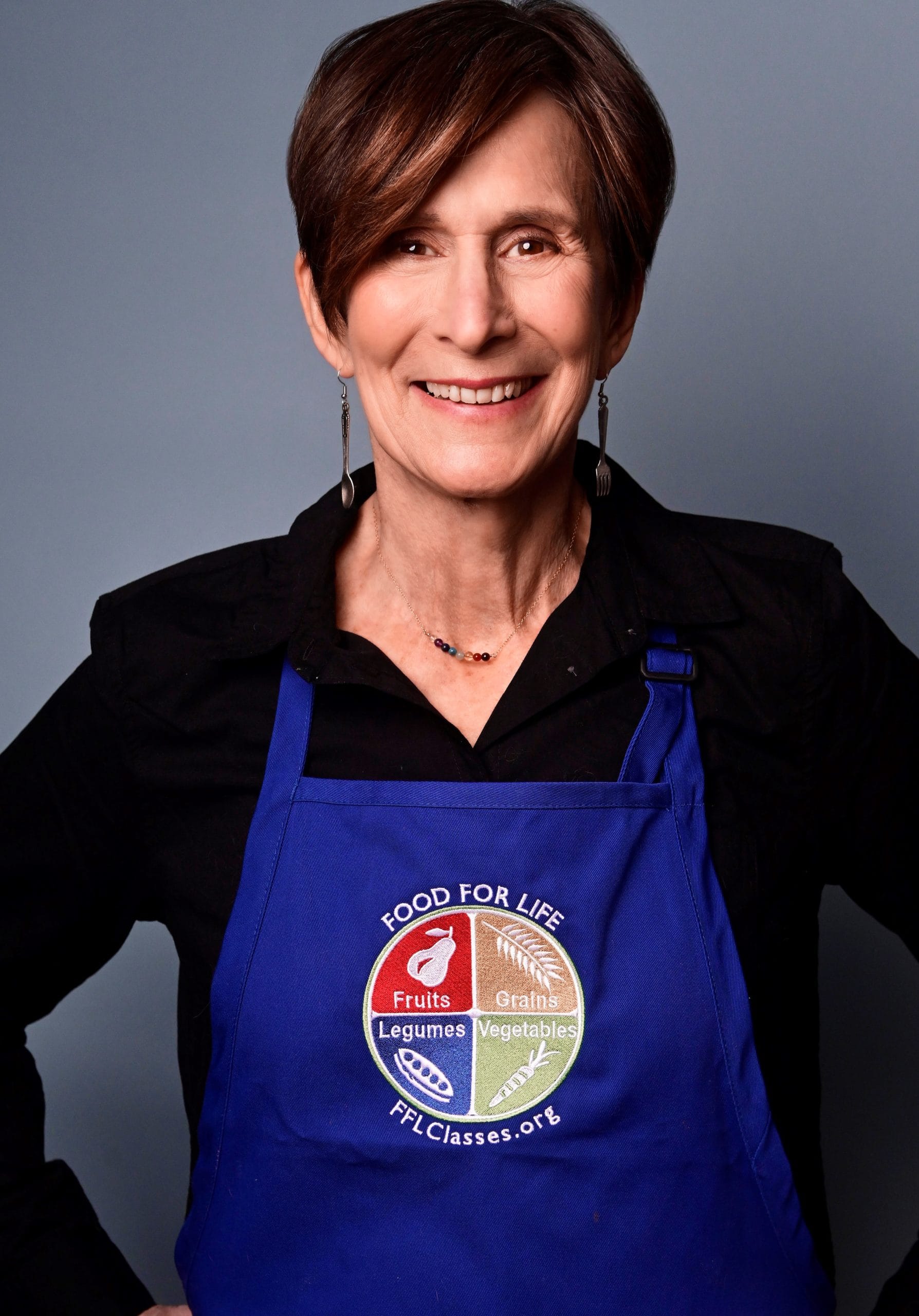
Louise Cohen-Silver is a Main Street Vegan Academy coach and educator with a passion for plant-based cooking, health, and nutrition, bringing 45+ years of vegetarian and vegan lifestyle to her practice. She holds a Plant-Based Nutrition certificate from the T. Colin Campbell Center for Nutrition Studies and is a PCRM Food for Life Instructor. Additionally, she has a Ph.D. in Counseling and Master’s in Deaf Education.
As a teacher, mentor, and counselor for Deaf and hearing students, Louise leverages her skills to help others transition to a joyful and healthy vegan way of life. Additionally, she volunteers as a mentor and organizer for Plant Powered Metro New York. Her mission is to inspire and empower others to live a healthier, more fulfilling life through a plant-based lifestyle.
Louise lives in Brooklyn with her two plant-curious rescued cats and 15-year-old vegan dog, Rizzo. Find her at PlantBasedLouise and on Instagram @plantbasedlouise.

